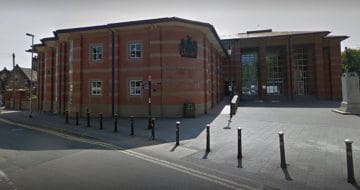Criminal law expert stirs up controversy online

An academic at Durham University Law School has provoked furious debate after saying that a high-profile rape allegation against student Liam Allan wasn’t necessarily “false”.
Criminal law assistant professor Hannah Bows made the Twitter claim despite the now infamous case being dropped after evidence emerged that the sex was consensual. The post generated protests from Allan and even the prosecuting barrister in the case.
Allan’s case generated a wave of media coverage at the end of 2017. The criminology student was charged with rape and sexual assault, but police failed to disclose crucial texts from the complainant that fatally undermined the case against him.
When the texts eventually surfaced — midway through the trial — they reportedly showed the complainant requesting sex with Allan and telling friends that she had enjoyed it. The Crown Prosecution Service (CPS) decided that there was no longer a realistic prospect of conviction and halted the case.
Responding to a BBC report yesterday that Allan had been “falsely accused”, Bows tweeted that “there is no evidence the allegation was false. The case was dropped due to police errors”.
Hi @BBCBreakfast, you referred to the ‘false’ allegation of rape against Liam Allen as part of your story this morning on disclosure in police investigations into rape. There is no evidence the allegation was false. The case was dropped due to police errors #responsiblereporting
— Hannah Bows ??? (@Hannah_Bows) April 29, 2019
The comment drew a strong response — including from Allan himself. He told Bows that there were messages “disproving the allegation entirely”.
The case was dropped due to the text messages disproving the accusation entirely? The fact it was dropped so late was because of the police errors. The content of the messages I can't talk about due to legal restrictions, hope that helps with understanding though ?
— Liam Allan (@liam_allan95) April 29, 2019
Disgusted lawyers also piled in, with criminal solicitor Nicholas Diable saying “It is an established fact that the case was dropped because messages were found in which the complaint made clear the sex was consensual”.
Jerry Hayes, the prosecuting barrister in Allan’s case, weighed in to say that “the withheld evidence showed that the allegations were false. That’s why I offered no evidence”.
Not so. The case was dropped because the withheld evidence showed that the allegations were false. That’s why I offered no evidence https://t.co/0Ftuq8PlSx
— Jerry Hayes (@jerryhayes1) April 29, 2019
But Bows hit back at her critics, saying that evidence in favour of the accused wasn’t “proof that an allegation was false”.
Evidence casting doubt is not the same as conclusive proof that an allegation was false. I hope that helps with your understanding.
— Hannah Bows ??? (@Hannah_Bows) April 29, 2019
Some members of the public supported the academic. Dr Ann Olivarius replied “why the distinction is so hard to understand for so many escapes me”, and Jill Arnold said “Glad you spoke out – the BBC throw in falsehoods (very sloppy journalism) all the time”.
But many responses were hostile. Some lawyers even claimed that Bows’s point could get her sued for defamation. David Hughes, a barrister at 30 Park Place Chambers, warned that “your tweets are an example of how easily very significant liability can be incurred, very quickly”.
You do appear determined to get sued for libel.
Your tweets are an example of how easily very significant liability can be incurred, very quickly.
— David Hughes ??⚖️ #FBPE (@DghSpanishWelsh) April 29, 2019
In follow-up tweets, Bows suggested that a rape allegation shouldn’t be described as false unless the claimant has actually been charged or convicted of making false allegations.
He has confirmed what we already knew – that the evidence weakened the case and there was no longer a realistic prospect of conviction. My point still stands – she has not been found guilty of making a false allegation. There is no conclusive evidence she made a false allegation
— Hannah Bows ??? (@Hannah_Bows) April 29, 2019
I would say by going through the proper processes that we have for anyone accused of a crime. But for me that is the point, she hasn’t been formally accused or charged for a false allegation yet the implied rhetoric is that she is guilty of it
— Hannah Bows ??? (@Hannah_Bows) April 29, 2019
She added: “I am stating the victim should not be described as/implied to be a liar/making false allegations when this has not been proven. Simples”.
The responses to this are incredibly predictable. I am been told I am implying the defendant in this case is guilty. Actually, I am stating the victim should not be described as/implied to be a liar/making false allegations when this has not been proven. Simples. https://t.co/6T7M95cJDU
— Hannah Bows ??? (@Hannah_Bows) April 29, 2019
Bows, whose research focuses on violence against women, victimology and feminist and socio-legal theory, is also a local magistrate. She told Legal Cheek last night that she had nothing further to add on the controversy.
Allan’s case is back in the headlines because of plans to change how alleged victims of crime give consent to having their phones examined by police. Media reports say that new police consent forms amount to “Hand over your phones or see attackers walk free“, but the CPS has attacked “serious inaccuracies” in media coverage, adding that “it is not true that complainants in rape cases must automatically hand over personal data on their digital devices or run the risk of the prosecution being dropped”.

